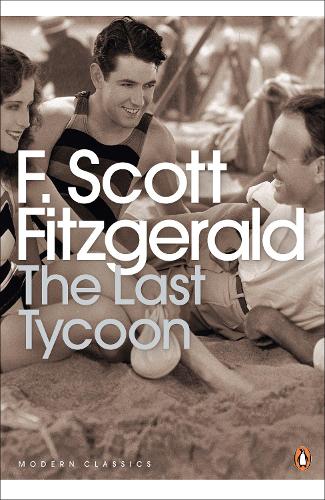
The Last Tycoon
(Paperback)
Available Formats
Paperback
Published: 28th May 2013
Hardback
Published: 8th November 2011
Paperback
Published: 27th March 2002
Paperback
Published: 29th October 2013
Paperback
Published: 23rd June 2014
Publishing Details
The Last Tycoon
By (Author) F. Scott Fitzgerald
Penguin Books Ltd
Penguin Classics
27th March 2002
31st January 2002
United Kingdom
Classifications
General
Fiction
Classic fiction: literary and general
813.52
Physical Properties
Paperback
208
Width 129mm, Height 198mm, Spine 12mm
161g
Description
The studio lot looks like 'thirty acres of fairyland' the night that a mysterious woman stands and smiles at Monroe Stahr, the last of the great Hollywood princes. Enchanted by one another, they begin a passionate but hopeless love affair, starting with a fast-moving seduction as slick as a scene from one of Stahr's pictures. The romance unfolds, frame by frame, watched by Cecilia, a thoroughly modern girl who has taken her lessons in sentiment and cynicism from all the movies she has seen. Her buoyant humour and satirical eye perfectly complement Fitzgerald's panorama of Hollywood at its most lavish and bewitching.
Author Bio
F. Scott Fitzgerald was born in 1896 in St Paul, Minnesota, and went to Princeton University, which he left in 1917 to join the army. He was said to have epitomized the Jazz Age, which he himself defined as 'a generation grown up to find all Gods dead, all wars fought, all faiths in man shaken'. In 1920 he married Zelda Sayre. Their traumatic marriage and her subsequent breakdowns became the leading influence on his writing. Among his publications were five novels, This Side of Paradise, The Great Gatsby, The Beautiful and the Damned, Tender is the Night and The Last Tycoon (his last and unfinished work); six volumes of short stories and The Crack Up, a selection of autobiographical pieces. Fitzgerald died suddenly in 1940. After his death The New York Times said of him that 'He was better than he knew, for in fact and in the literary sense he invented a 'generation'. . . he might have interpreted and even guided them, as in their midle years they saw a different and nobler freedom threatened with destruction.'
